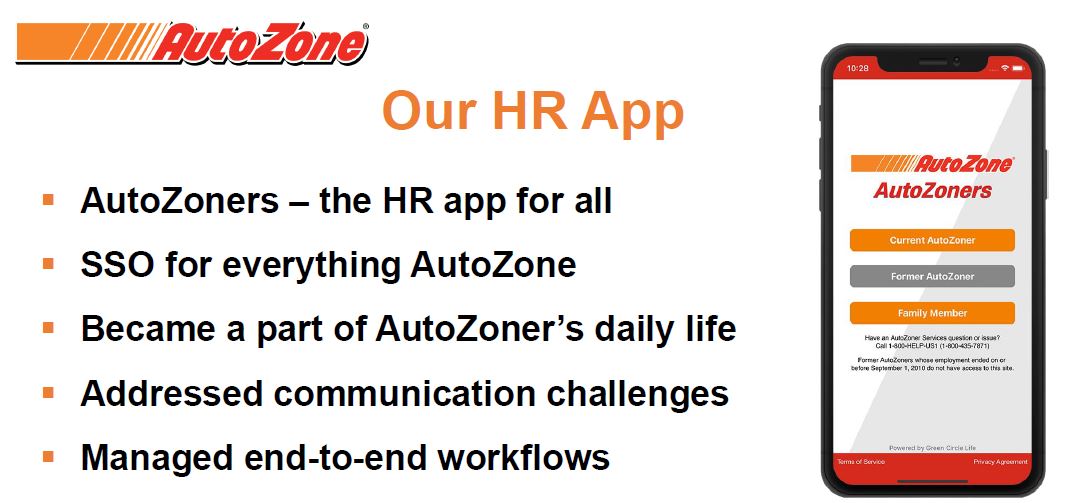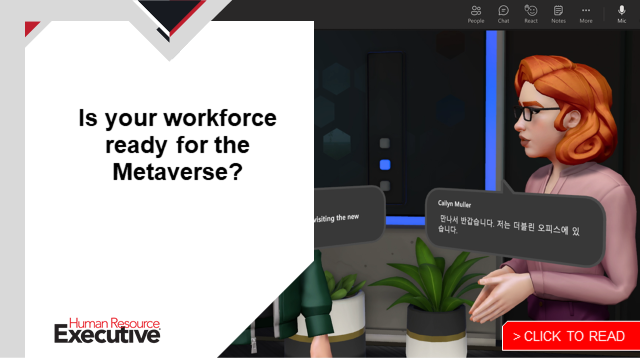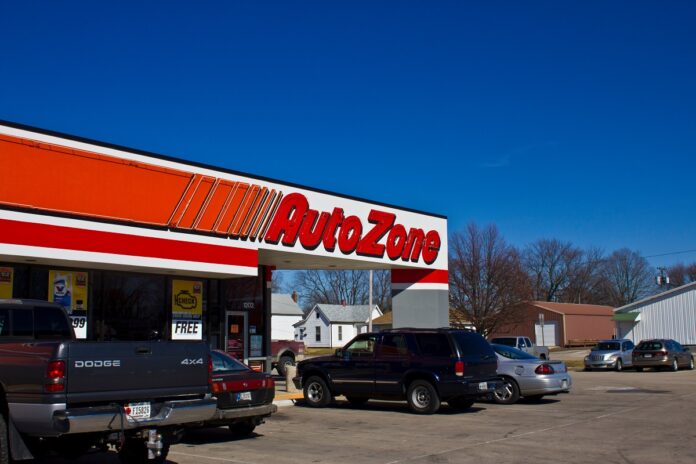When most of the world shut down two years ago at the start of the American wave of the COVID-19 pandemic, AutoZone decided that wasn’t an option for its 120,000 global employees and 6,700 stores. While some stores closed temporarily and a portion of AutoZoners—their employees—worked remotely for a short period of time, the auto parts and accessories company’s HR team accelerated into action.
Instead of building new technology to help its people through the challenges, AutoZone relied on solutions from employee engagement solution provider Green Circle Life to inform employees about virus safety and about how the company would function during its brief lockdown and beyond. Green Circle Life also helped the company keep employees engaged and committed while letting them know that AutoZone valued their work, safety and wellbeing.
At HRE‘s Health & Benefits Leadership Conference this week in Las Vegas, Matthew Harmon, AutoZone’s vice president of benefits, compensation and HR systems, said his team faced three HR benefit challenges before and at the start of the pandemic: too many benefits and services, app overload, and a need to “separate the message from the noise.”
Related: Top benefits lesson from COVID: Have a playbook for the next crisis
COVID-19 added urgency, of course. “In the early days of the pandemic, our must-achieves were to support essential workers and keep yourself and others safe,” he said. “We had to connect with AutoZoners where they were. They all have mobile phones and they engage with HR when they want to.”

Green Circle Life, a partner since 2018, played a critical role for AutoZone, handling daily communication, COVID updates and work announcements via its HR app. AutoZone’s HR team also urged employees to connect with their benefits, many of which were either expanded or enhanced due to the pandemic, using Green Circle Life’s Benefit dashboard app.
Harmon and his team decided that maintaining a single point of contact for HR benefits communications via smartphones was critical for dispersing information. “Employees want a frictionless experience with their employers and with HR,” he said.
It paid off, as engagement with the benefits dashboard exploded during COVID-19, from 13,786 subscriptions to the app in 2018 to 63,137 in 2021.
Communication with workers was key. “You can have great benefit programs but if you’re not connecting with the employees, it doesn’t matter,” said Harmon.
One way the company boosted that communication, along with engagement and participation, was by allowing up to four family members to access each employees’ HR and employee benefits apps. This expansion of users provided more access and visibility into the benefits for decision-makers choosing medical plans and voluntary benefits.
“If we’re not communicating with the boss, that’s wrong,” said Harmon, referring to the employee’s spouse or others who might be involved.
Because it is an employer with high turnover rates—60% is not uncommon—AutoZone also worked to develop a sense of belonging for employees in the early days of the pandemic. This included offering $100 million in paid time off to employees when stores were closed and ramping up its mental health offerings to help workers and their family members who were struggling with anxiety, burnout and related issues.
Related: The biggest HR innovation right now? ‘It’s you,’ HR leaders
 The company also examined its holistic health offerings. Green Circle Life’s Health Condition Management app, for example, addresses diabetes, hypertension, COPD and other breathing disorders, obesity, hip replacements and ER visits, said Dinesh Sheth, founder and CEO of Green Circle Life.
The company also examined its holistic health offerings. Green Circle Life’s Health Condition Management app, for example, addresses diabetes, hypertension, COPD and other breathing disorders, obesity, hip replacements and ER visits, said Dinesh Sheth, founder and CEO of Green Circle Life.
AutoZone saw greater usage and engagement with the apps, which helped lower healthcare costs and improve outcomes for those employees who connected. “Daily utilization of the app grew 95% and those who were engaged took few sick and disability days,” said Sheth, adding that engaged employees also had lower COVID costs than unengaged employees. “It saved lives.”



